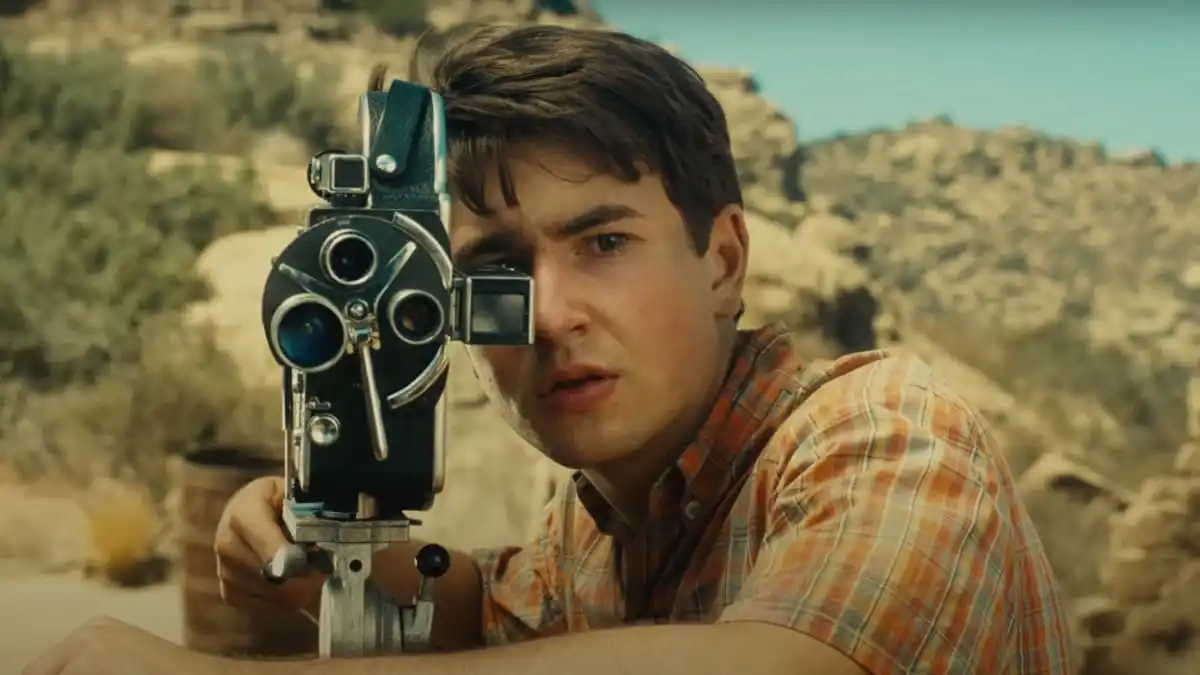The Fabelmans is the semi-autobiographical story of director and co-writer Steven Spielberg’s upbringing told through the lens of Sammy Fabelman (Gabriel LaBelle). While the movie is mostly true (with embellishments), it is more of a look into Spielberg’s understanding of his childhood and what he went through with his parents, his sisters, his love for filmmaking, and the anti-Semitic bullying he endured in school.
The film works on so many levels because it is, at its core, a love story about why he fell in love with movies and how his real mother, Leah Adler (whose name in the film is Mitzi Fabelman, played by Michelle Williams), encouraged that love.
You can look at fact-check sites to see just how much of his upbringing Spielberg and long-time collaborator Tony Kushner put into the film, but what I think really works about The Fabelmans is that it’s Spielberg sharing with audiences what inspired him to make his own movies—while bringing us a new Spielberg classic that will inevitably inspire a new generation just as his previous films have.
The Fabelman family
It is a movie about Sammy Fabelman coming into his own as a creative in a family divided by arts and sciences, but it is also a love letter to the complicated dynamic of parents and kids. For Mitzi, she gave up her life as a pianist (for the most part) to be a parent to her children with Burt (Paul Dano). And while Burt constantly moves his family for better opportunities at work, the strain on their family stays in the knowledge that the arts aren’t as important as the sciences in Burt’s eyes.
He’s not mean about it and he doesn’t tell Sammy he can’t make movies, but he does call it a hobby—in a way that anyone who is creative knows hurts. But Sammy keeps making movies because his mother loves them, and when she makes a choice for herself that inevitably hurts the family, Sammy takes that as a selfish move and refuses to keep making movies and following his heart.
He comes back around (obviously, because we have Steven Spielberg), but seeing that struggle from someone who so many of us have idolized throughout our lives is a bit humbling to watch. Spielberg questioned himself just as the rest of us have, and it makes the childhood love of Spielberg movies that inspired many creatives (like myself) that much more special.
Growing up with Spielberg films
I am someone who grew up in a Spielberg-loving household. My older brother, who shared his love of Spielberg’s work with me, would make his own movies inspired by the worlds that Spielberg created. So watching The Fabelmans and seeing how Sammy was inspired by movies like The Greatest Show on Earth—which he refused to let leave his mind until he could recreate it himself— makes you feel instantly connected to Sammy as a character.
We get to see a younger Sammy (played by Mateo Zoryon Francis-DeFord) watching the movie for the first time and the magic he’s captured by—even if he was afraid of the train crash scene. It is so connected to the way many of us watched Spielberg films that The Fabelmans feels almost like a love letter to those of us who were inspired by Spielberg’s work.
Spielberg is giving us this story of his life and what made him into the creative we know and love by showing us that how we feel about his work is how he feels about movies as a whole. It feels like getting to grow up with a different kind of Spielberg movie all over again, and I loved what The Fabelmans reveals about the director who made so many of us fall in love with the movies in the first place.
____________
The Fabelmans is in select theaters now and will open nationwide on November 23. It is worth a watch for Spielberg fans and newbies alike!
(featured image: Universal Pictures)










Published: Nov 22, 2022 05:58 pm